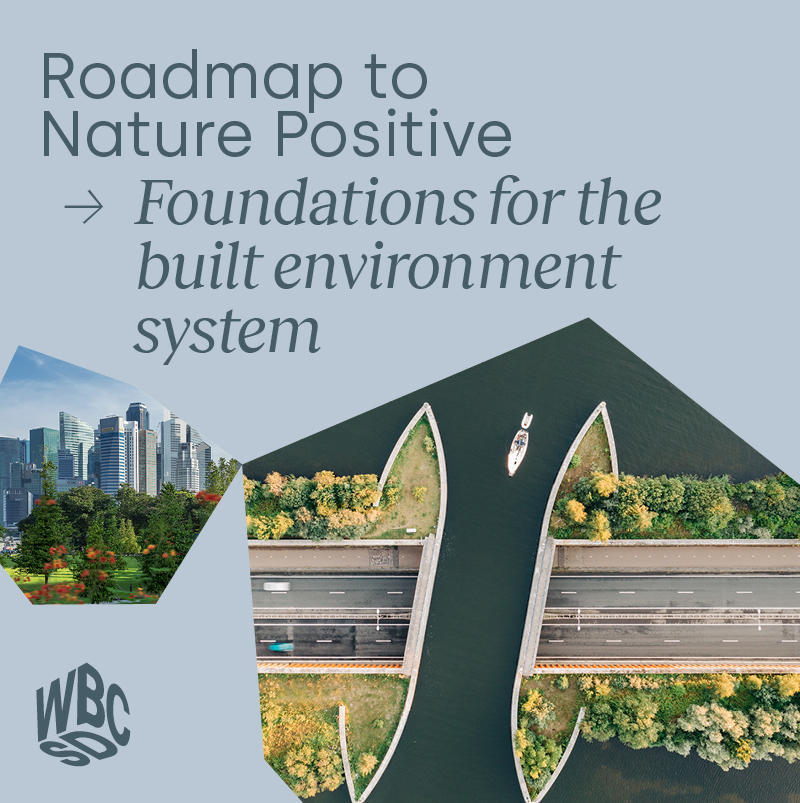
The built environment system is responsible for 40% of global CO2 emissions, 40% of global resource use and 40% of global waste streams. It is set to double in size: the global population is expected to reach 9.8 billion in 2050. This growth will intensify pressures on nature, leading to increased water usage, pollution and waste production.
WBCSD’s Roadmap to Nature Positive: Foundations for the built environment system is a step-by-step guidance with supporting material developed through extensive engagement with 8 companies, and Arcadis as lead consultant.
This guidance identifies five subsystems to describe the different characteristics of the built environment system: buildings, urban infrastructure, transport infrastructure, marine and coastal infrastructure, and a crosscutting subsystem covering upstream mining and extraction activities.
It builds on an assessment of the most significant impacts, dependencies, risks, and opportunities across the four value chain stages of a project (from extraction to demolition). This informs six key priority actions that all businesses and stakeholders should take now to transform and ensure the built environment system plays its role in halting and reversing nature loss by 2030:
- Avoid further terrestrial, freshwater, and marine habitat conversion
- Prioritize re-use and retrofitting
- Choose raw materials mindfully
- Invest in circular material use
- Address climate change and nature simultaneously
- Integrate nature-based solutions (NbS)
About the Roadmaps to Nature Positive
WBCSD’s Roadmaps to Nature Positive provide step-by-step guidance for companies to accelerate credible nature-positive ambition, action and accountability. The Roadmaps provide in-depth analysis and guidance relevant for all businesses, as well as specific guidance for four high-impact systems: land use (specifically, the agri-food system and the forest products sector), built environment system and energy system. Read more about WBCSD’s Roadmaps to Nature Positive.

